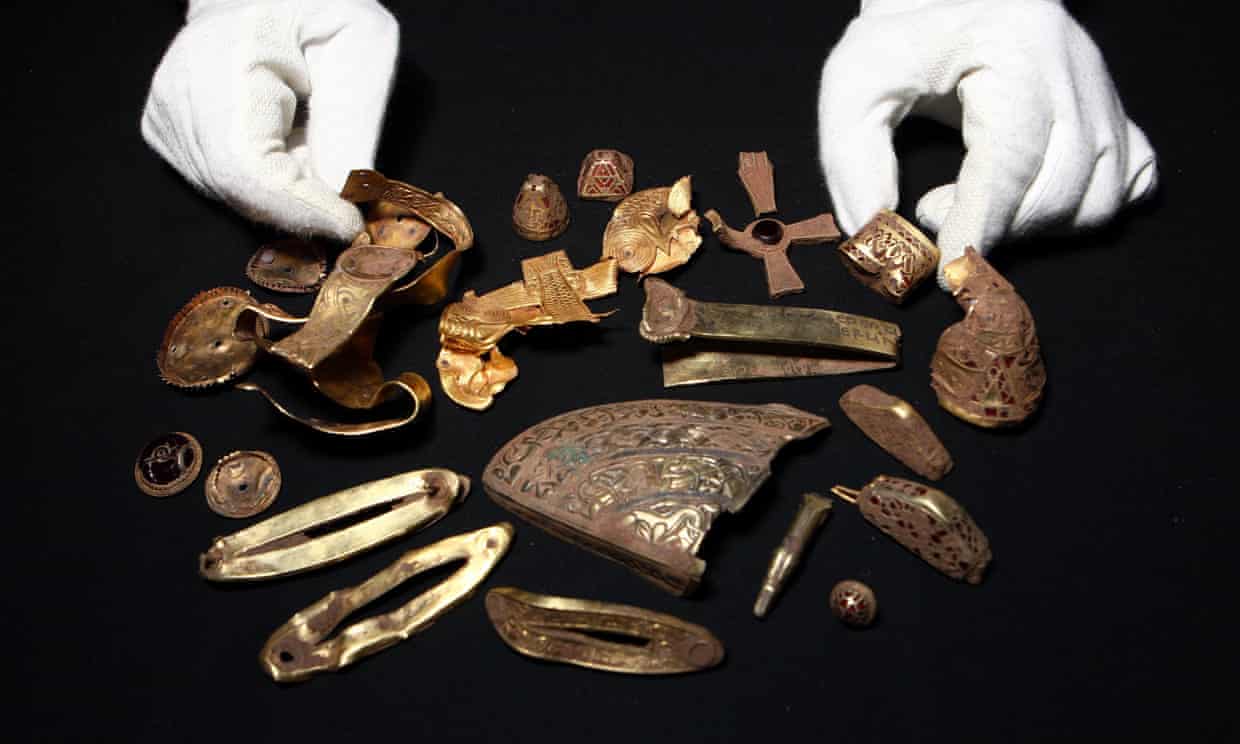Items from the Staffordshire hoard of gold, weapons and ornaments found by a metal detectorist in 2009. Photograph: David Jones/PA
First major academic research finds ‘war hoard’ likely captured in battles between regional kingdoms
When an amateur metal detectorist first heard his machine beep in an unpromising field in Lichfield in July 2009 and dug down to uncover gold, it was clear this was no ordinary archaeological discovery.
But who had collected the astonishing stash of gold, garnet weapons and ornaments he had found? Why had they been buried? And why were so many of them broken?
After a decade of conservation and analysis, archaeologists have finally revealed their conclusions about these tantalising questions and others, with the publication of the first major academic research into what became known as the Staffordshire hoard.
What they have concluded, according to Chris Fern, the lead academic on the project, reaffirms the hoard’s significance as “without a doubt one of the greatest finds of British archaeology” and casts new light on one of the most turbulent periods of early English history.
The archaeologists have even tentatively identified the Mercian king they believe may have once owned the booty, and can draw a tantalising link to the dynasty of the rival Anglo-Saxon ruler who was buried at Sutton Hoo, Britain’s most famous site of the period.
Read the rest of this article...
